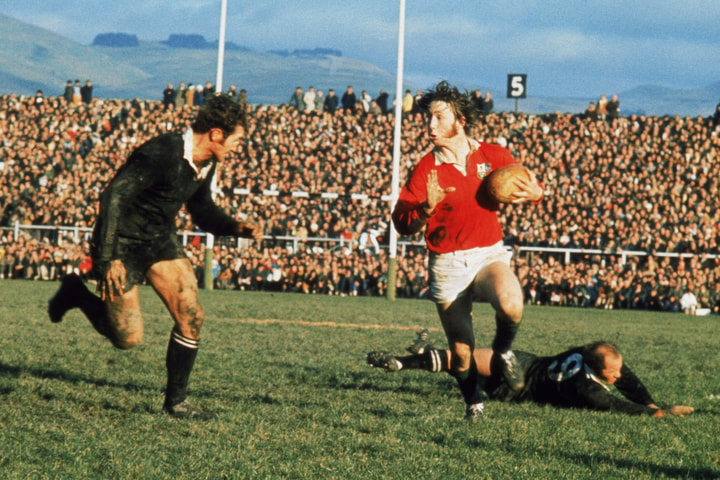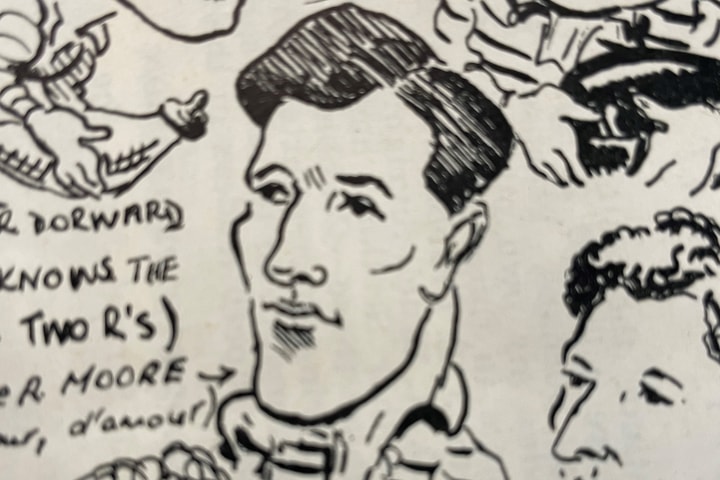On January 20th 1912, the first player to be capped from the Kirkcaldy rugby club in Fife took the field at Inverleith for the first of Scotland's four matches in the 1912 International championship.
The Kirkcaldy club was founded in 1873 and initially joined the Scottish Football Union in 1885. After their ground had been taken over for other activities, the club re-joined the SFU in 1894 and went on to win the North of Scotland Cup three times in five years at the turn of the century.
David Dickie Howie was born in May 1889 and educated at Kirkcaldy High School where, in addition to being a forward in the School XV for three years, he showed exceptional athletic prowess in winning the elite Nairn Cup as the school's champion athlete for 1903. Following his schooling, he became a farmer on the family holding at the Grange, near Kirkcaldy and played rugby for his local club.
Kirkaldy was not one of the fashionable Scottish clubs so it was difficult for its players to attract the attention of the national selectors. An early indication of David Howie's potential was shown when he was picked to play for the Scottish Provinces against the Anglo-Scots in December 1909 and for the North of Scotland against the South in the 1910-11 season. His rise to international recognition continued when he played for the Whites in the final trial at Inverleith in January 1912. Although the Glasgow Herald was somewhat disparaging about his play, stating that he was "little in evidence and did nothing to prove his quality", the selectors fortunately disagreed and picked Howie as one of eight new caps, four of them in the forwards, to face France at Inverleith.
David Howie was to win seven consecutive caps over the next two seasons as a rugged and dependable forward, following his very successful debut in front of 16,000 spectators in the 31-3 victory over France. His appearances included the 16-0 defeat by the touring South Africans in November 1912 but he was dropped during the 1912-13 Championship after a home 0-8 defeat against Wales.
On the Monday after the Welsh match, the Scottish Referee gave a glowing testimonial to Howie's performance:
"Perhaps the best of a disappointing lot was the Kirkcaldy representative, Howie. He never flinched, stuck to his guns like a hero, and was never far away when wanted."
However, the selectors were not impressed with the overall Scottish performance and made five changes for the match against Ireland. The Dundee Courier was particularly scathing at Howie's omission from the Scotland team and asserted:
"The only change that will occasion any surprise is the dropping of Howie, the Kirkcaldy forward, and the only representative of the North in the side. Howie has all along been regarded as one of the finest forwards in the kingdom, and his invariable fitness to stay a hard game has often been commented on."
As it turned out, Scotland beat Ireland convincingly without Howie who was unable to regain his place in the national side the following season due to injury.
There were to be no further opportunities for him on the rugby field as he enlisted in September 1914 in the Fife and Forfar Yeomanry at Kirkcaldy. After being commissioned in the Highland Brigade of the Royal Field Artillery (RFA), he trained in England before embarking for Egypt in August 1915. Posted to Turkey, he caught pneumonia during the evacuation of troops from the Gallipoli peninsula and was admitted to the Anglo-American Hospital in Cairo. Very ill and suffering from delusions, David Howie died on 19 January 1916 of 'self-inflicted revolver wounds, whilst temporarily of unsound mind, due to the delirium of pneumonia'.







